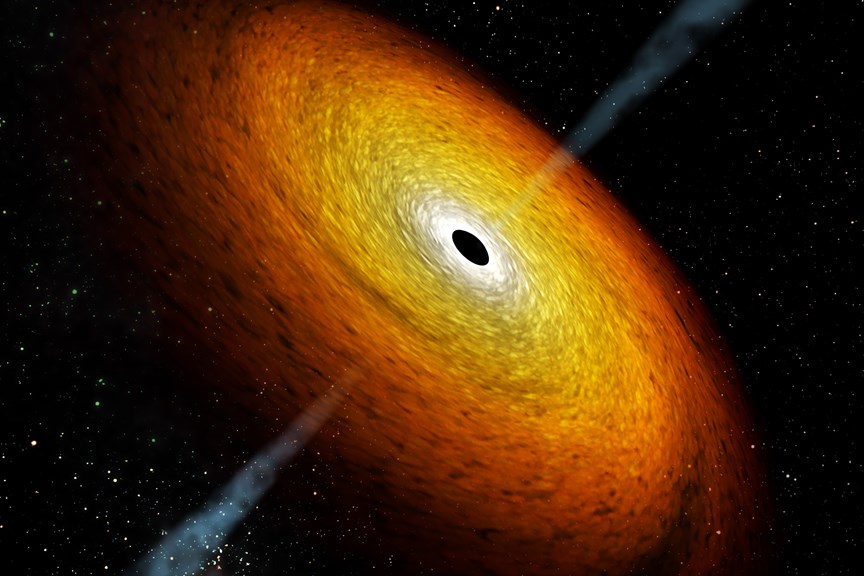Black holes have always been a topic of fascination among space enthusiasts. They are one of the most mysterious objects in the universe, and their properties have been the focus of intense study by physicists for decades.
Firstly, it's important to understand that black holes are formed when massive stars collapse at the end of their lives. Black holes have three main properties: mass, charge, and angular momentum. The gravity of black holes is so strong that nothing, not even light, can escape from them. This point of no return is called the event horizon.
One of the most significant theories about black holes is the no-hair theorem. This theorem states that a black hole can be fully described by its three main properties. Therefore, any other information about the black hole, such as its shape or composition, is lost when it forms. This theory has been widely accepted in the scientific community and has led to a better understanding of black holes.
Another important theory about black holes is the theory of Hawking radiation. It states that black holes emit radiation, even though nothing can escape from them. Hawking radiation is caused by the quantum effects of gravity at the event horizon. This theory has been a subject of intense debate and research for many years.
Theories of black holes are crucial in modern physics because they help us understand the nature of gravity and the fundamental laws of physics. Black holes are the most extreme gravitational objects in the universe, and by studying them, physicists can learn more about how gravity works and how it interacts with matter and energy.
Black holes also provide us with a unique opportunity to test our theories under extreme conditions. For example, the theory of general relativity predicts that black holes should exist, but it has been difficult to test this prediction directly. By studying black holes, physicists can test the theory of general relativity and other theories of physics under extreme conditions.
Moreover, black holes are thought to have formed in the early universe, shortly after the Big Bang. By studying black holes, physicists can learn more about what the early universe was like and how it evolved. Therefore, black holes are essential in our understanding of the universe's evolution.
In conclusion, theories of black holes are still under development, but they have already helped us to understand the universe in new and profound ways. Studying black holes can help us learn more about the nature of gravity and the fundamental laws of physics. As we continue to study black holes, we can expect to learn even more about the universe's mysteries.
Tags:
Cosmology

